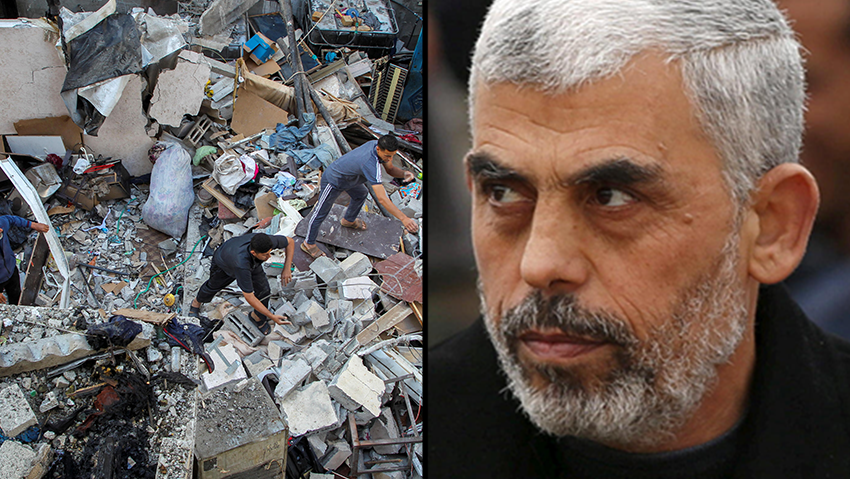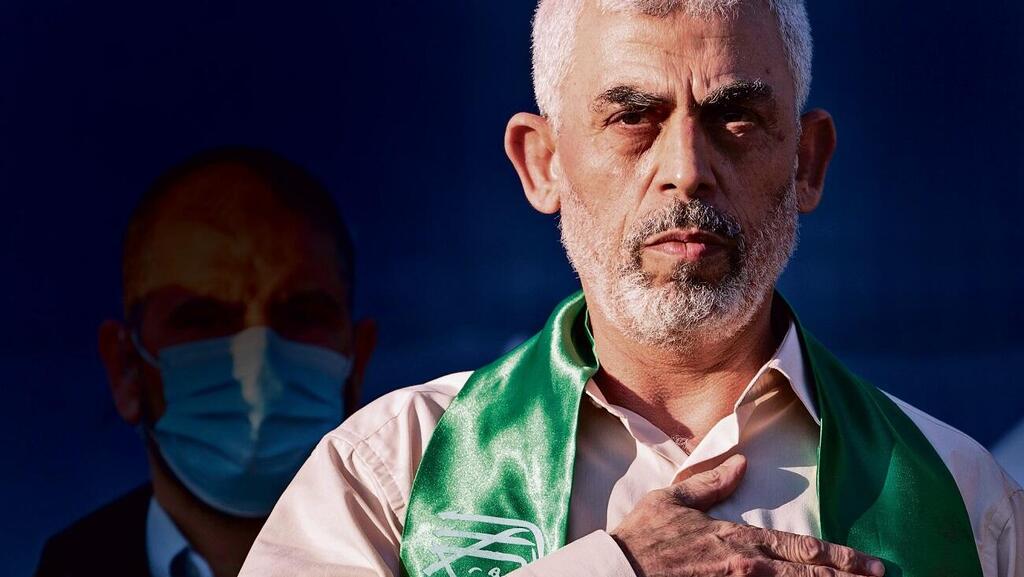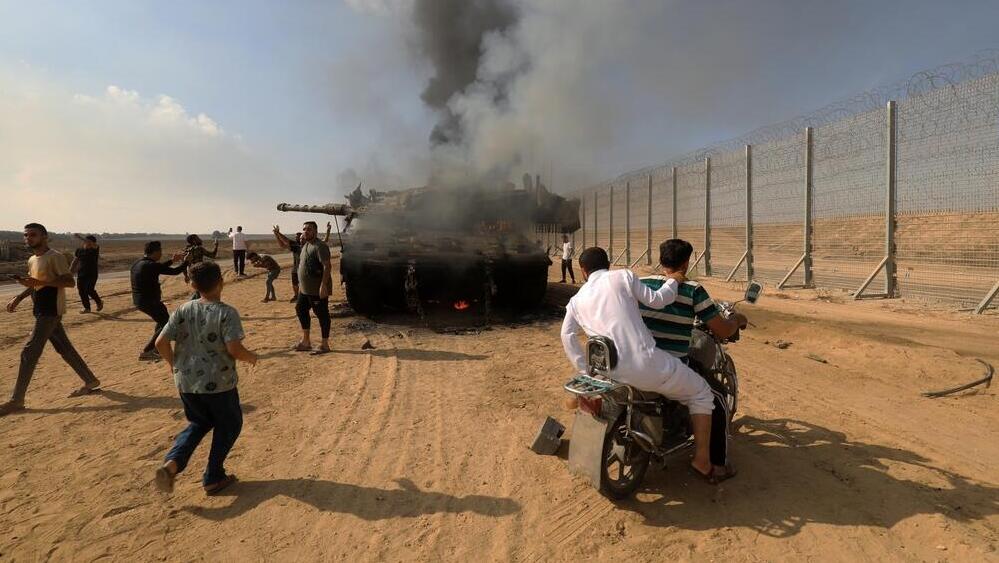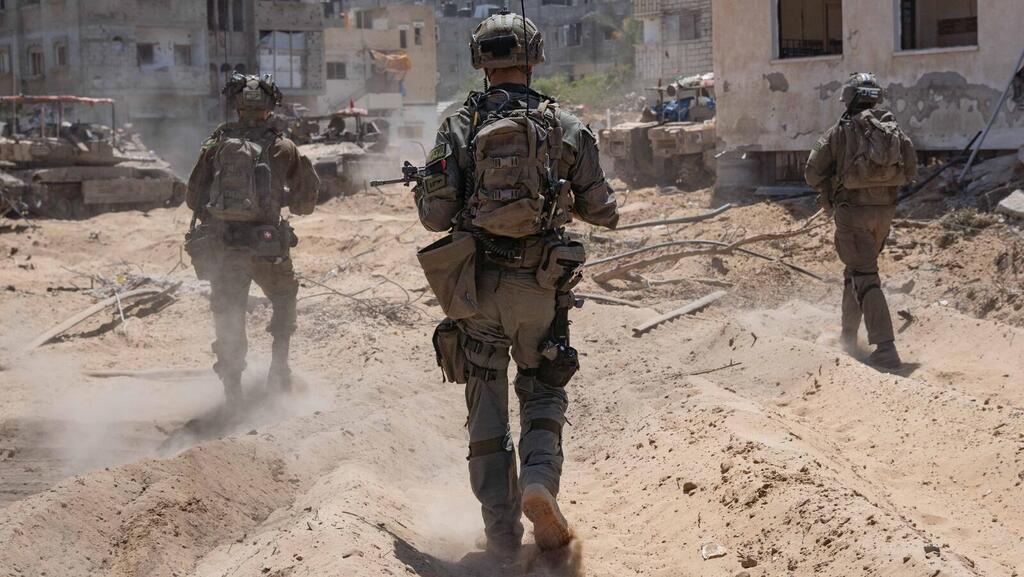Getting your Trinity Audio player ready...
Some correspondence of Hamas Leader Yahya Sinwar with senior members of the terror group since October 7 and throughout the war, have come to light showing his indifference to the suffering of the Gaza civilians in the wake of the atrocities. In a report in The Wall Street Journal on Tuesday the messages also related to the negotiations for the release of Israeli hostages in exchange for a cease-fire.
After three of Hamas’s political leader Ismail Haniyeh's sons were killed in an airstrike last April, Sinwar wrote that their deaths and those of other Palestinians would “infuse life into the veins of this nation, prompting it to rise to its glory and honor,” according to texts seen by the news outlet – further demonstrating Sinwar’s cold and calculative stance on the suffering in Gaza and his disregard for his people’s lives.
Since the start of the war in Gaza, Israel had been criticized for its military offensive in the Strip both in the Arab world and in Western countries over the widespread coverage of the extensive destruction in Gaza by prominent Western media outlets, citing the death toll provided by the Hamas Health Ministry.
“We have the Israelis right where we want them,” Sinwar recently wrote to senior Hamas officials involved in negotiations for a hostage deal, mediated by Qatar and Egypt.
The American outlet’s report claimed it had obtained dozens of messages sent by Sinwar to members of the negotiation team, including his Hamas colleagues. The newspaper noted the messages were received from several people "with differing views on Sinwar."
Hamas currently claims over 37,000 Palestinians have been killed in the Gaza Strip since the beginning of the war, most of them civilians. However, in a message sent to one of Hamas's leaders in Doha, Sinwar referred to civilian casualties in wars such as Algeria's War of Independence against France, saying, "hundreds of thousands were killed there—these are necessary sacrifices."
The Wall Street Journal noted Sinwar's ultimate goal appears to be securing a permanent cease-fire, which would allow Hamas to declare a historic victory — having "survived" Israel's efforts to destroy it — and thereby claim leadership over the entire Palestinian people.
Even without a long-term cease-fire, it seems that Sinwar believes Prime Minister Benjamin Netanyahu has few options other than occupying the entire Gaza Strip — with its over two million residents — and becoming mired in months and years of dealing with Hamas’s guerrilla warfare.
The American newspaper also quoted Sinwar from an interview he gave in 2018 to Italian journalist Francesca Borri, in which he said that for Netanyahu, a victory over Hamas would be "even worse than a defeat."
According to the report, although Sinwar planned and executed the surprise attack on October 7, early messages he sent to those involved in the negotiations indicated he was surprised by the brutality of his organization's terrorists and the Palestinian looters who also infiltrated Israel, and by the ease with which they committed atrocities against civilians.
"Things went out of control," Sinwar wrote in one of those messages regarding the "gangs" that kidnapped Israeli women and children. “People got caught up in this, and that should not have happened.” he wrote.
While the IDF was effectively dismantling the terror group’s military infrastructure, Hamas's political leadership began meeting with other Palestinian factions at the start of December 2023 to discuss reconciliation and their plans for post-war Gaza. However, according to the report, Sinwar wasn’t included in these consultations.
In response, he sent a message to the heads of Hamas's politburo, denouncing the move as "shameful and outrageous.” "As long as fighters are still standing and we have not lost the war, such contacts should be immediately terminated," Sinwar wrote, adding, “We have the capabilities to continue fighting for months."
Near the end of January, the IDF’s rapid progress in the Gaza Strip slowed, and the military was engaged in defeating Hamas brigades in Khan Younis, Sinwar's hometown. At the same time, the number of fallen soldiers saw an increase as well.
On February 19, Israel set a deadline for Hamas to agree to a deal before the month of Ramadan and before ordering a ground operation in Rafah. Sinwar urged his colleagues in Hamas not to agree to concessions in the negotiations and instead to insist on ending the war. "The high number of civilian casualties would create worldwide pressure on Israel," Sinwar wrote.
In another message to Hamas leaders in Qatar, Sinwar said that "Israel’s journey in Rafah won’t be a walk in the park.”
Although the IDF has since begun ground operations in Rafah, as Sinwar anticipated, the fighting in the area has brought with it a heavy humanitarian and diplomatic toll to Israel. Meanwhile, Sinwar’s messages indicate he’s prepared to die in battle.
In a message he recently sent to his allies, Sinwar compared the war in Gaza to the Battle of Karbala in 680 CE, in which the Sunni faction defeated the Shia and established the Islamic caliphate as Sunni rather than Shia. "We have to move forward on the same path we started,” Sinwar wrote. “Or let it be a new Karbala.”






